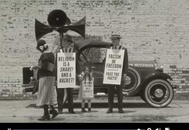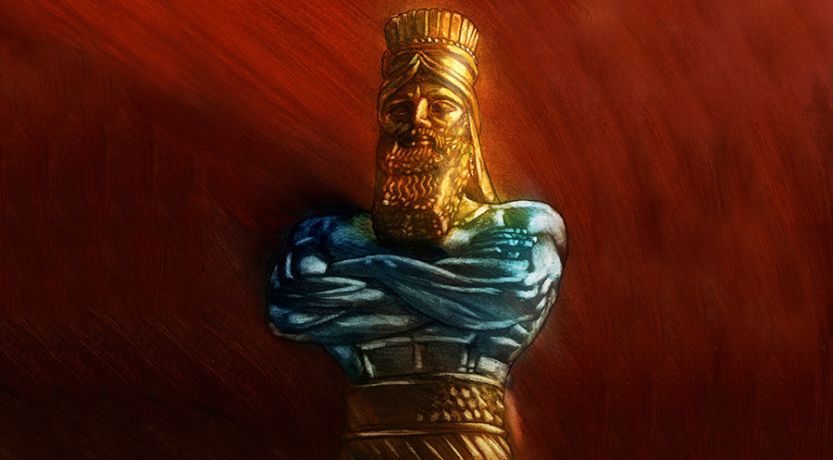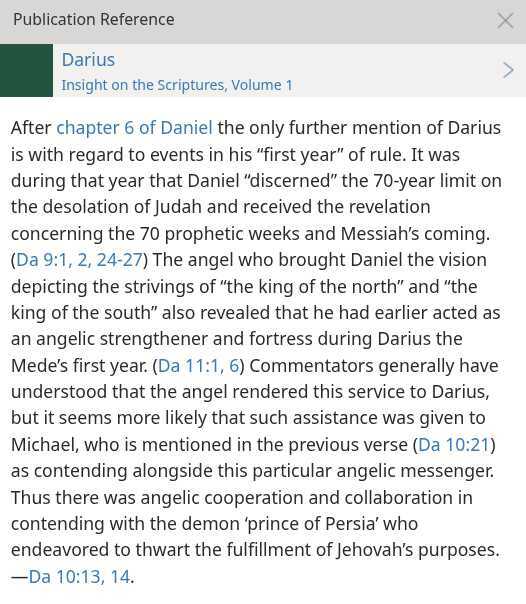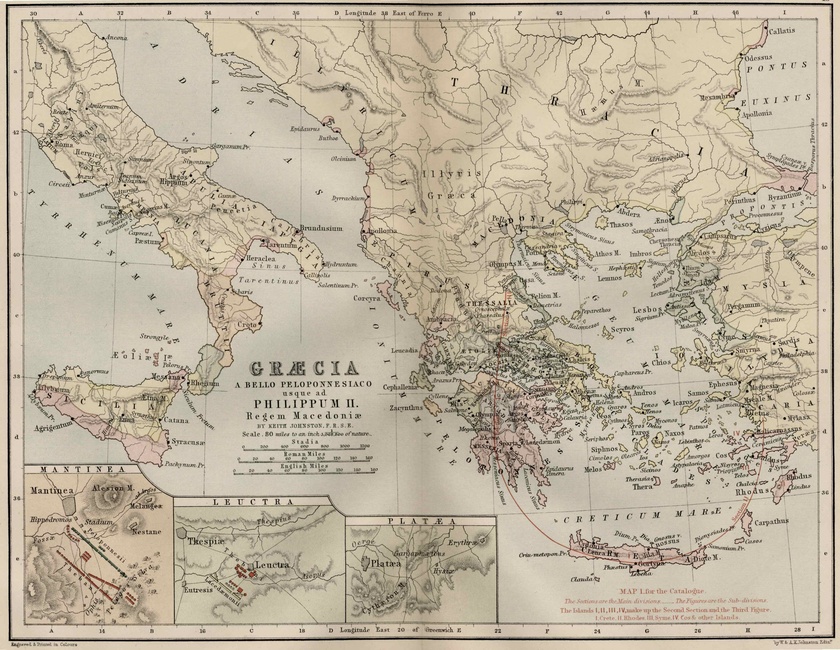Let's Learn About Daniel Chapter Eleven! PART 2 of 2 (Daniel 11:15-xx)
Prophesied to Enter Jerusalem, The Land of Decoration
Daniel 11:15 “And the king of the north will come and throw up a siege rampart and capture a fortified city. And the arms* of the south will not stand, nor will his select men; and they will have no power to stand.
Daniel 11:16 The one coming against him will do as he pleases, and no one will stand before him. He will stand in the land of the Decoration, and ability to exterminate will be in his hand.
Publication Reference
Two Kings in Conflict
Pay Attention to Daniel’s Prophecy!
29, 30. (a) How did “the arms of the south” succumb to the assault from the north? (b) How did the king of the north come to “stand in the land of the Decoration”?
29 Jehovah’s angel further foretold: “The king of the north will come and throw up a siege rampart and actually capture a city with fortifications. And as for the arms of the south, they will not stand, neither the people of his picked ones; and there will be no power to keep standing. And the one coming against him will do according to his will, and there will be no one standing before him. And he will stand in the land of the Decoration, and there will be extermination in his hand.”—Daniel 11:15, 16.
30 Military forces under Ptolemy V, or “arms of the south,” succumbed to assault from the north. At Paneas (Caesarea Philippi), Antiochus III drove Egypt’s General Scopas and 10,000 select men, or “picked ones,” into Sidon, “a city with fortifications.” There Antiochus III ‘threw up a siege rampart,’ taking that Phoenician seaport in 198 B.C.E. He acted “according to his will” because the forces of the Egyptian king of the south were unable to stand before him. Antiochus III then marched against Jerusalem, the capital of “the land of the Decoration,” Judah. In 198 B.C.E., Jerusalem and Judah passed from domination by the Egyptian king of the south to that of the Syrian king of the north. And Antiochus III, the king of the north, began to “stand in the land of the Decoration.” There was “extermination in his hand” for all opposing Jews and Egyptians. For how long would this king of the north be able to do as he pleased?
[end reference]
DANIEL 11:17 He will set his face to come with the full force of his kingdom, and there will be equitable terms with him; and he will act effectively. As regards the daughter of women, it will be granted to him to bring her to ruin. And she will not stand, and she will not continue to be his.
Publication Reference
Two Kings in Conflict
Pay Attention to Daniel’s Prophecy!
34, 35. (a) To what “coastlands” did the king of the north turn his face? (b) How did Rome bring an end to “the reproach” from the king of the north? (c) How did Antiochus III die, and who came to be the next king of the north?
34 Referring to the reverses of the king of the north, the angel added: “And he [Antiochus III] will turn his face back to the coastlands and will actually capture many. And a commander [Rome] will have to make the reproach from him cease for himself [Rome], so that his reproach [that from Antiochus III] will not be. He [Rome] will make it turn back upon that one. And he [Antiochus III] will turn his face back to the fortresses of his own land, and he will certainly stumble and fall, and he will not be found.”—Daniel 11:18, 19.
35 The “coastlands” were those of Macedonia, Greece, and Asia Minor. A war broke out in Greece in 192 B.C.E., and Antiochus III was induced to come to Greece. Displeased because of the Syrian king’s efforts to capture additional territories there, Rome formally declared war on him. At Thermopylae he suffered a defeat at Roman hands. About a year after losing the battle of Magnesia in 190 B.C.E., he had to give up everything in Greece, Asia Minor, and in areas west of the Taurus Mountains. Rome exacted a heavy fine and established its domination over the Syrian king of the north. Driven from Greece and Asia Minor and having lost nearly all his fleet, Antiochus III ‘turned his face back to the fortresses of his own land,’ Syria. The Romans had ‘turned back upon him his reproach against them.’ Antiochus III died while trying to rob a temple at Elymaïs, Persia, in 187 B.C.E. He thus ‘fell’ in death and was succeeded by his son Seleucus IV, the next king of the north.
[end of reference]
Daniel 11:18 He will turn his face back to the coastlands and will capture many. And a commander will make the reproach from him cease for himself, so that his reproach will not be. He will make it turn back on that one.
Publication Reference
Two Kings in Conflict
Pay Attention to Daniel’s Prophecy!
ROME CONSTRAINS THE EXPLOITER
31, 32. Why did the king of the north end up making “equitable terms” of peace with the king of the south?
31 Jehovah’s angel gives us this answer: “He [the king of the north] will set his face to come with the forcefulness of his entire kingdom, and there will be equitable terms with him; and he will act effectively. And as regards the daughter of womankind, it will be granted to him to bring her to ruin. And she will not stand, and she will not continue to be his.”—Daniel 11:17.
32 The king of the north, Antiochus III, “set his face” to dominate Egypt “with the forcefulness of his entire kingdom.” But he ended up making “equitable terms” of peace with Ptolemy V, the king of the south. Rome’s demands had caused Antiochus III to change his plan. When he and King Philip V of Macedonia leagued against the Egyptian king of tender years to take over his territories, the guardians of Ptolemy V turned to Rome for protection. Taking advantage of the opportunity to expand its sphere of influence, Rome flexed its muscles.
33. (a) What were the terms of peace between Antiochus III and Ptolemy V? (b) What was the purpose of the marriage between Cleopatra I and Ptolemy V, and why did the scheme fail?
33 Under compulsion by Rome, Antiochus III brought terms of peace to the king of the south. Rather than surrendering conquered territories, as Rome had demanded, Antiochus III planned to make a nominal transfer of them by having his daughter Cleopatra I—“the daughter of womankind”—marry Ptolemy V. Provinces that included Judah, “the land of the Decoration,” would be given as her dowry. At the marriage in 193 B.C.E., however, the Syrian king did not let these provinces go to Ptolemy V. This was a political marriage, formed to make Egypt subject to Syria. But the scheme failed because Cleopatra I did “not continue to be his,” for she later sided with her husband. When war broke out between Antiochus III and the Romans, Egypt took the side of Rome.
[end of erference]
DANIEL 11:19 Then he will turn his face back to the fortresses of his own land, and he will stumble and fall, and he will not be found.
Two Kings in Conflict
Pay Attention to Daniel’s Prophecy!
34, 35. (a) To what “coastlands” did the king of the north turn his face? (b) How did Rome bring an end to “the reproach” from the king of the north? (c) How did Antiochus III die, and who came to be the next king of the north?
34 Referring to the reverses of the king of the north, the angel added: “And he [Antiochus III] will turn his face back to the coastlands and will actually capture many. And a commander [Rome] will have to make the reproach from him cease for himself [Rome], so that his reproach [that from Antiochus III] will not be. He [Rome] will make it turn back upon that one. And he [Antiochus III] will turn his face back to the fortresses of his own land, and he will certainly stumble and fall, and he will not be found.”—Daniel 11:18, 19.
35 The “coastlands” were those of Macedonia, Greece, and Asia Minor. A war broke out in Greece in 192 B.C.E., and Antiochus III was induced to come to Greece. Displeased because of the Syrian king’s efforts to capture additional territories there, Rome formally declared war on him. At Thermopylae he suffered a defeat at Roman hands. About a year after losing the battle of Magnesia in 190 B.C.E., he had to give up everything in Greece, Asia Minor, and in areas west of the Taurus Mountains. Rome exacted a heavy fine and established its domination over the Syrian king of the north. Driven from Greece and Asia Minor and having lost nearly all his fleet, Antiochus III ‘turned his face back to the fortresses of his own land,’ Syria. The Romans had ‘turned back upon him his reproach against them.’ Antiochus III died while trying to rob a temple at Elymaïs, Persia, in 187 B.C.E. He thus ‘fell’ in death and was succeeded by his son Seleucus IV, the next king of the north.
[end of reference]
Daniel 11:20 “And there will stand up in his position one who causes an exactor to pass through the splendid kingdom, but in a few days he will be broken, though not in anger nor in warfare.
Publication Reference
Augustus
Insight on the Scriptures, Volume 1
In 2 B.C.E. “a decree went forth from Caesar Augustus for all the inhabited earth to be registered; and all people went traveling to be registered, each one to his own city.” (Lu 2:1, 3) This decree resulted in Jesus’ being born in Bethlehem in fulfillment of Bible prophecy. (Da 11:20; Mic 5:2)
[end reference]
Daniel 11:21 “And there will stand up in his position a despised one, and they will not give him the majesty of the kingdom; and he will come in during a time of security and take hold of the kingdom by means of smoothness.
Daniel 11:22 And the arms of the flood will be swept away on account of him, and they will be broken; as will be the Leader of the covenant.
Publication Reference
Tiberius
Insight on the Scriptures, Volume 2
Tiberius was despised not only by such individuals as his schoolteacher Theodorus the Gadarene and his stepfather Augustus, but also by his subjects in general. After his death, the Senate refused to deify him. For these reasons and others too, Bible scholars see in Tiberius a fulfillment of prophecy that says “one who is to be despised” would arise as “the king of the north.”—Da 11:15, 21
[end reference]
Daniel 11:23 And because of their alliance with him, he will carry on deception and rise up and become mighty by means of a little nation.
Daniel 11:24 During a time of security he will come into the richest parts of the province and do what his fathers and their fathers have not done. Plunder and spoil and goods he will distribute among them; and against fortified places he will plot his schemes, but only for a time.
Publication Reference
The Two Kings Change Identities
Pay Attention to Daniel’s Prophecy!
12. (a) Who allied themselves with Tiberius? (b) How did Tiberius “become mighty by means of a little nation”?
12 Still prophesying about Tiberius, the angel said: “Because of their allying themselves with him he will carry on deception and actually come up and become mighty by means of a little nation.” (Daniel 11:23) Members of the Roman Senate had constitutionally ‘allied themselves’ with Tiberius, and he formally depended upon them. But he was deceptive, actually becoming “mighty by means of a little nation.” That little nation was the Roman Praetorian Guard, encamped close to Rome’s walls. Its proximity intimidated the Senate and helped Tiberius keep in check any uprisings against his authority among the populace. By means of some 10,000 guards, therefore, Tiberius remained mighty.
[end reference]
Daniel 11:25 “And he will muster his power and his heart against the king of the south with a large army, and the king of the south will prepare himself for the war with an exceedingly large and mighty army. And he will not stand, because they will plot schemes against him.
Daniel 11:26 And those eating his delicacies will bring his downfall.
“The King of the North” in the Time of the End
The Watchtower (Study)—2020 | May
8. Who has been the king of the south throughout the last days?
8 During World War I, the United States and Britain were welded into a powerful military alliance. At that time, Britain and its former colony became the Anglo-American World Power. As Daniel foretold, this king had amassed “an exceedingly large and mighty army.” (Dan. 11:25) Throughout the last days, the Anglo-American alliance has been the king of the south.c Who, though, has filled the role of the king of the north?
The Anglo-American World Power in Bible Prophecy
The king of the south, the Anglo-American World Power, is depicted in a number of different ways in various Bible prophecies. It is described as . . .
The feet of iron and clay.
the feet of iron and clay (Dan. 2:41-43)
[end reference]
Daniel 11:27 “As regards these two kings, their heart will be inclined to do what is bad, and they will sit at one table speaking lies to each other. But nothing will succeed, because the end is yet for the time appointed.+
Daniel 11:28 “And he will go back to his land with a great amount of goods, and his heart will be against the holy covenant. He will act effectively and go back to his land.
Publication Reference
The Rival Kings Enter the 20th Century
Pay Attention to Daniel’s Prophecy!
“INCLINED TO DOING WHAT IS BAD”
2. As the 19th century ended, what powers filled the roles of “the king of the north” and “the king of the south”?
2 As the 19th century neared its end, the German Empire was “the king of the north” and Britain stood in the position of “the king of the south.” (Daniel 11:14, 15) “As regards these two kings,” said Jehovah’s angel, “their heart will be inclined to doing what is bad, and at one table a lie is what they will keep speaking.” He continued: “But nothing will succeed, because the end is yet for the time appointed.”—Daniel 11:27.




































